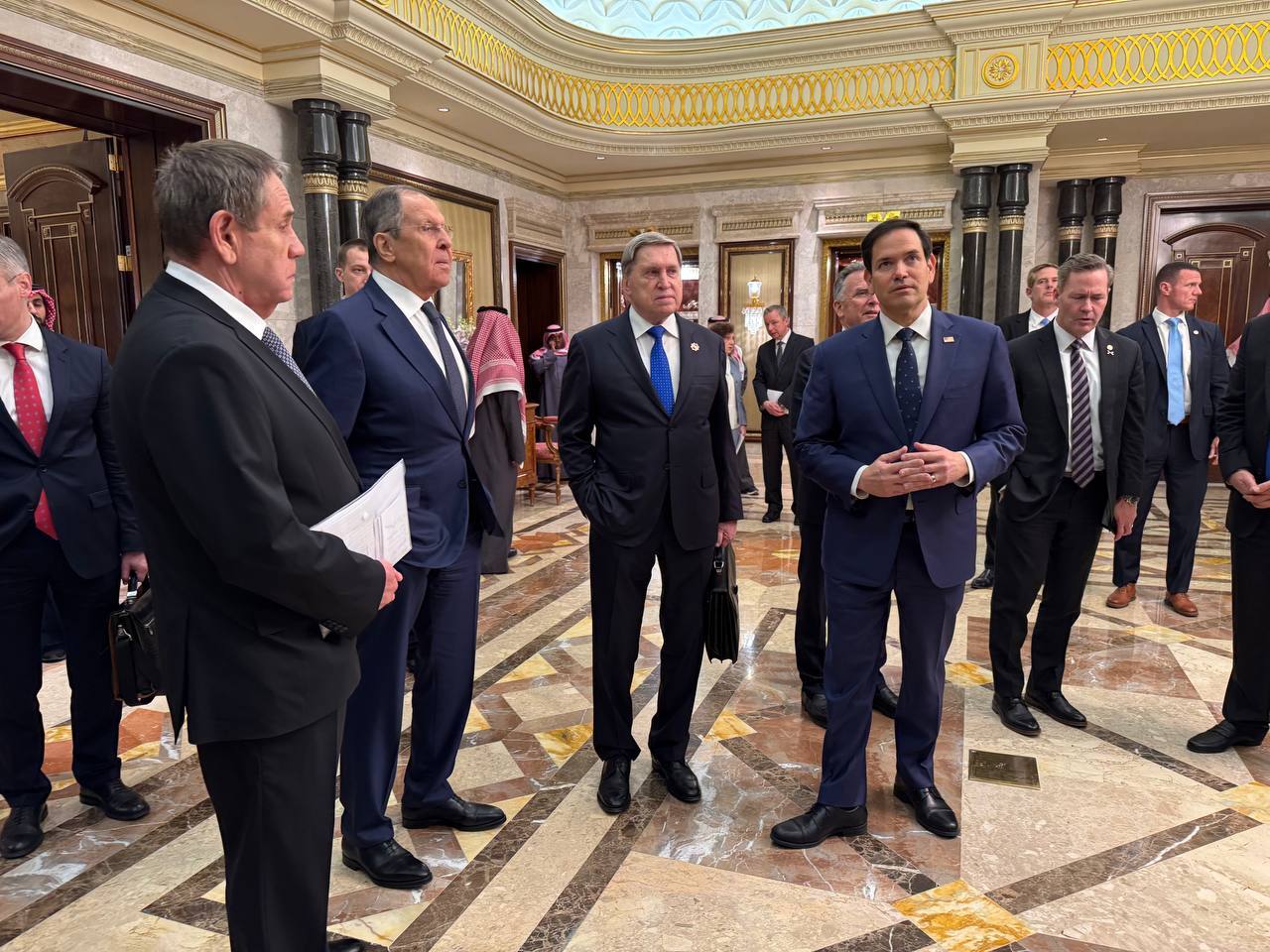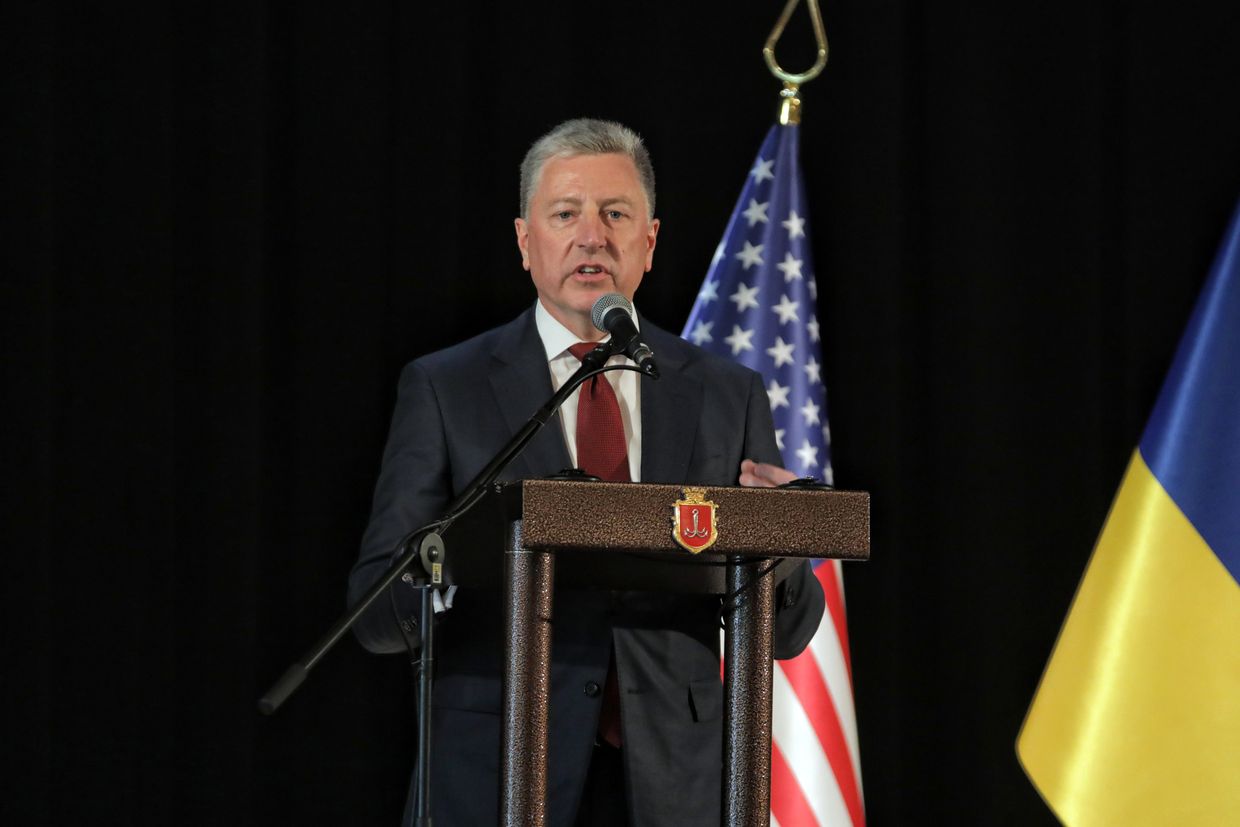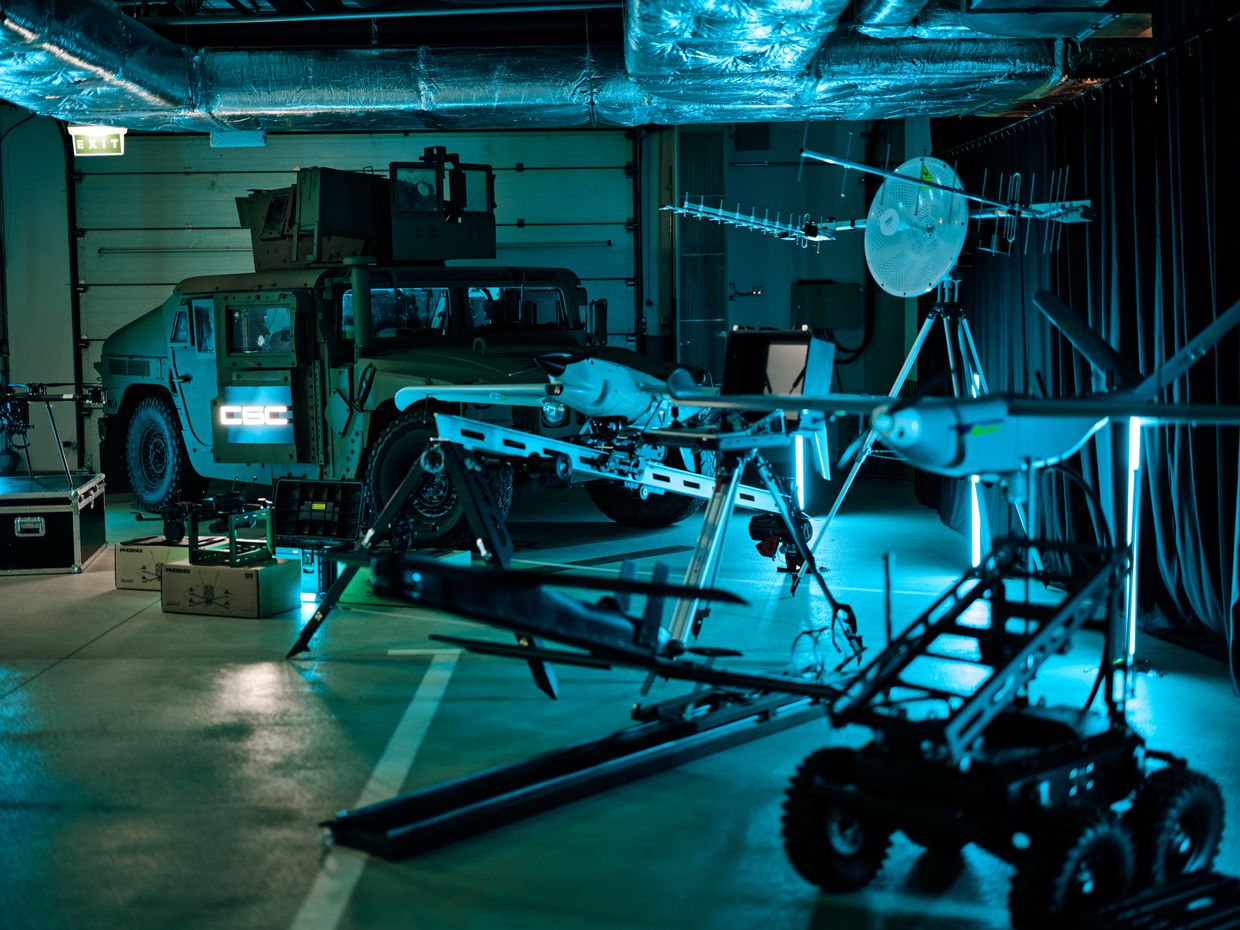US-Russia talks in Saudi Arabia end

Editor's note: This piece has been updated to reflect the end of the talks and the statements from U.S. and Russian officials.
U.S. and Russian officials on Feb. 18 held talks in Saudi Arabia on how to end Moscow's war in Ukraine.
A Russian delegation led by Foreign Minister Sergey Lavrov met a U.S. delegation led by State Secretary Marco Rubio, the first official face-to-face contact between the two sides since the start of Russia's full-scale invasion.
An official picture of the meeting showed U.S. Middle East envoy Steve Witkoff, Secretary of State Marco Rubio, National Security Advisor Mike Waltz, Saudi Arabia's Foreign Minister Prince Faisal bin Farhan al-Saud, National Security Advisor Mosaad bin Mohammad al-Aiban, Kremlin foreign policy advisor Yuri Ushakov, and Russia's Foreign Minister Sergey Lavrov at a table in Riyadh's Diriyah Palace.
After the talks concluded, a member of Russia's delegation said the talks were "not bad," but it was "hard to say" if the two sides' interests were converging.
Speaking to the pro-Kremlin Channel One Russia, Yuri Ushakov, an advisor to Russia's President Vladimir Putin, said it was a "very serious discussion of all the issues we wanted to touch upon."
"We have agreed to take account of each other's interests and develop bilateral relations, since both Moscow and Washington are interested in this," he added.
Ushakov also said a meeting between U.S. President Donald Trump and Putin were discussed, but it was unlikely to take place next week as had been previously speculated.
Though the U.S. and Russia met without Ukraine, President Volodymyr Zelensky will also head to Saudi Arabia this week. NBC reported that the intention is for the U.S. to host a bilateral meeting with Russia, followed by a bilateral meeting with Ukraine, and culminating with talks together.
Zelensky arrived in Turkey on Feb. 17 from where he will travel to Saudi Arabia.
Ankara. At the beginning of our visit to Türkiye, we honored the memory of Mustafa Kemal Atatürk, the country's first president, whose legacy remains an important part of Türkiye’s history and values. pic.twitter.com/z8HX9mPsLa
— Volodymyr Zelenskyy / Володимир Зеленський (@ZelenskyyUa) February 18, 2025
Neither Ukraine nor Europe has been invited to the main discussion, setting off alarm bells in Kyiv and capitals across the continent that U.S. President Donald Trump and Russian President Vladimir Putin could reach an agreement without Ukraine and Europe’s involvement, and one that puts their future security in jeopardy.
Zelensky warned against a hastily negotiated peace deal from the Trump administration during a wide-ranging interview with German media network ARD published Feb. 17, reaffirming that Ukraine would not accept a peace deal negotiated without the country's involvement.
"Everything that Russia and the U.S. can agree on — if they even want to agree on something — concerns their bilateral relations. They certainly cannot negotiate about our people and our lives. About an end to the war without us," Zelensky told ARD.
Lavrov on Feb. 17 said there could be "no thought of" territorial concessions to Ukraine.
Russia illegally annexed Ukraine's Crimea peninsula in 2014, as well as the Kherson, Zaporizhzhia, Donetsk, and Luhansk oblasts in 2022.
Russia's claims to have annexed the four oblasts in their entirety were made despite not controlling all of them, including two regional capitals - Kherson and Zaporizhzhia.
Last year, Russian President Vladimir Putin said that as a condition for peace negotiations, Ukrainian troops must leave Donetsk, Luhansk, Kherson and Zaporizhzhia oblasts.
"Territorial concessions to what is now called Ukraine were made by the Soviet leadership during the formation of the USSR," Lavrov said in comments reported by Reuters.
Lavrov also said he saw no role for Europe in negotiations over how to end Russia's full-scale invasion of Ukraine.
"If they're going to come up with some crafty ideas about freezing the conflict like this, and they themselves... have in mind the continuation of the war, then why invite them?" he said.
After an emergency summit of European leaders in Paris on Feb. 17, French President Emmanuel Macron reaffirmed the need for strong security guarantees for Ukraine, warning that a ceasefire without them risks collapsing like the failed Minsk agreements.
After bringing together several European leaders, I have just spoken with President @realDonaldTrump and then with President @ZelenskyyUa.
— Emmanuel Macron (@EmmanuelMacron) February 17, 2025
We seek a strong and lasting peace in Ukraine. To achieve this, Russia must end its aggression, and this must be accompanied by strong…
The Paris summit, convened by Macron on short notice, reflected growing European concerns that Trump and Russian President Vladimir Putin may be negotiating over European security without the direct involvement of European leaders.
"We seek a strong and lasting peace in Ukraine," Macron said. "To achieve this, Russia must end its aggression, and this must be accompanied by strong and credible security guarantees for the Ukrainians."
He stressed that without such measures, any ceasefire could be short-lived and ineffective.
Also on Feb. 17, NATO Secretary General Mark Rutte said Europe is ready and willing to take a leadership role in providing Ukraine with security guarantees.
Ready and willing. That’s my take from today’s meeting in Paris. Europe is ready and willing to step up. To lead in providing security guarantees for Ukraine. Ready and willing to invest a lot more in our security. The details will need to be decided but the commitment is clear. pic.twitter.com/Y4ClrX94Qe
— Mark Rutte (@SecGenNATO) February 17, 2025













